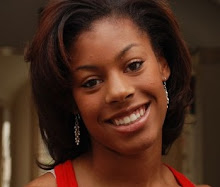Yesterday was my first day in Africa, and what a day! After a delicious breakfast with my host family, I headed out to the genocide memorial. My host family is convinced that my Father and I do not eat enough, and they won’t let us leave the table until we’ve had seconds and thirds! Martha and her husband, my host parents, have brought a new meaning to the word hospitality, graciously helping us get settled into our new life in Kigali. They suggested that we visit the genocide memorial before starting our work. My Father and I immediately agreed, and we all piled into the family jeep to spend the morning at the memorial. Once we arrived, we found that the memorial served many different functions. First, it is the site of a mass grave, where people can pay their respects to lost loved ones. Second, it teaches visitors about their responsibility to prevent future genocides. And third, it acts as a museum that provides visitors with information about the history of Rwanda preceding and following the genocide. The memorial revealed the painful story of the massacre of 1 million Rwandans in 100 days. But just as the story was painful, it was also incredibly inspiring, depicting the resilient and forgiving nature of the Rwandan people.
I was especially affected by a quote from the memorial that read, “After the holocaust, we said never again, but was it only meant for some people?” In light of this question, genocide becomes a human problem, rather than a national or ethnic problem, and the prevention of genocide ceases to begin and end with a national boundary. For me, it was the apathy of the international community, which was particularly painful to learn about. The Belgium colonial government introduced ethnic identification cards that began the process of ethnic division in Rwanda, the French supplied the Hutu murders with arms, the UN failed to respond to calls for more peace keeping troops, and the US response was late and inadequate at best. Even after the holocaust, the international response to genocide was tragic and unacceptable. The memorial ended with a tribute to the thousands of children who were killed. I left with a heavy burden on my heart, and a renewed desire to use Little Feet-Big Sky to serve the generation of children who would grow to be Rwanda’s future leaders.
My host parents model this type of service every day, through their decision to adopt 6 orphans who lost their parents and families during the genocide. During our car ride to the memorial, Martha shared moving stories of how she carried Thomas, one of her children, for a day and a half in order to keep him safe after his Father was killed. During the genocide, Martha’s husband hid in a tunnel for weeks, and then joined Martha in the hotel in Rwanda, which inspired the movie ‘Hotel Rwanda’. It soon became clear that the history of the genocide, which had been a distant, albeit painful chapter of my textbook, had left a permanent and scarring imprint on the memories of many people. After visiting the genocide we all shared a quiet lunch outside on a terrace overlooking the city. We didn’t say much, but I felt as though we all shared a commitment to help address the needs of the Rwandan people in any way we could.
My Father and I left our host parents, and traveled to Moucecore, to meet with Willie Rumenara, a community leader for Village Cyanika, and an old family friend. He was all business and bustle, ready to get down to work. He outlined, what the people in Rwanda call “Our Program,” aka the schedule, which was packed with community health meetings in Village Cyanika, in a pigmy village, various houses and community meeting places. During these meetings we will share information about the critical child health issues that will be discussed on Little Feet-Big Sky (child malnutrition, child immunization, HIV/AIDS, and malaria) and also ask what health information they would like us to discuss in future broadcasts. Willie took us to the radio station where we met with the DJ and radio staff, and confirmed our first broadcast for Wednesday July 22 at 6pm. It was so exciting to begin to see a hazy dream become a concrete reality! Tomorrow, I am looking forward to meeting with the physician who is going to help us continue the important work of combating infant mortality in Rwanda through the radio, by helping us to train medical students to take responsibility for the development of the radio program. I fell into bed happily exhausted, and full of three courses of rosemary chicken, which Martha had insisted I eat!
Tuesday, July 14, 2009
Subscribe to:
Comments (Atom)

